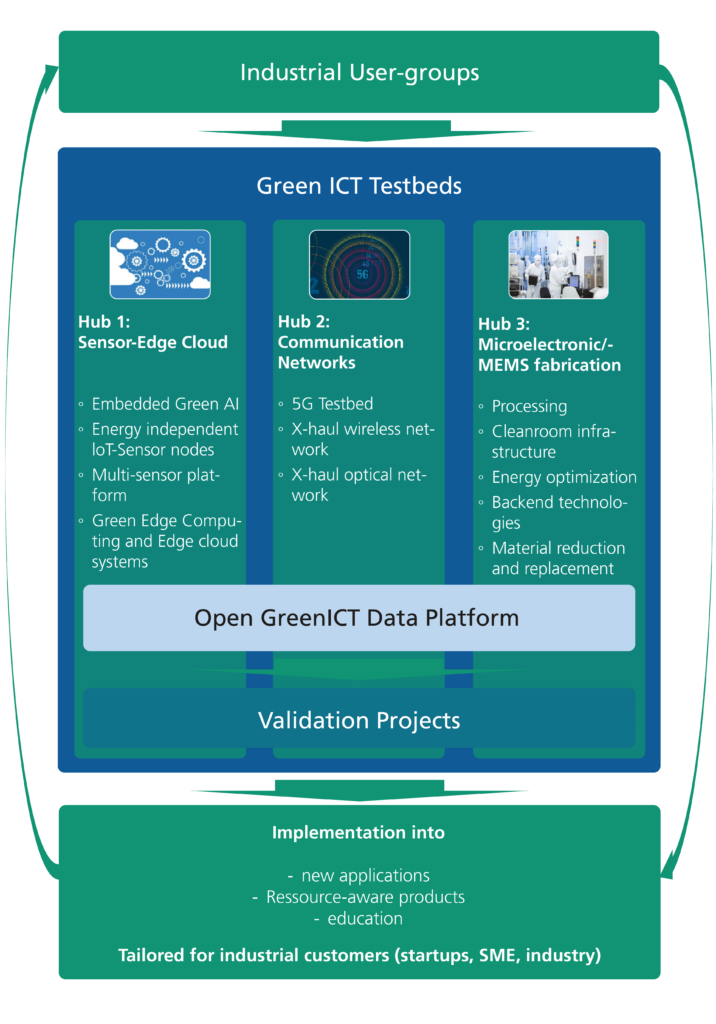
The FMD offers a wide range of technological approaches to industrial partners in Germany and Europe, enabling them to manufacture and use information and communications technology more ecological sustainably in the future. To expand this portfolio of application-oriented solutions to meet current market requirements, the existing expertise is being thematically bundled and continuously developed in three Green ICT hubs:
- Sensor Edge Cloud Systems
- Energy-saving communication infrastructures
- Resource-optimized electronics production
For each thematic focus of the Green ICT hubs, we provide the required infrastructure to evaluate and subsequently optimize the systems and subsystems of our industry partners regarding their resource consumption.
First point of contact for partners from industry and the scientific community
The three Green ICT hubs constitute an initial contact point for project partners from industry and the scientific community. Here, existing systems and products are ecologically assessed so that new products can be manufactured sustainably (already in the development phase), and their use phase can likewise be designed resource-efficiently. All this is enabled through specific validation projects.
Besides the office of the FMD One-Stop-Shop, the hubs are the crucial interface for the partners to the thematically bundled technology competencies and testbeds. By contrast to the One-Stop-Shop, where a general and overarching approach is provided, the Hubs enable specific issues to be explored in more depth and examined in practice.

Validation projects: Get the sustainability booster for your product!
In the first phase of the "Green ICT @ FMD" project, the FMD partner institutes will start or use already established cooperations with the industry to determine the current and potential future demand for LCA data. Based on these requirement profiles, the partners from a specific work package in the hubs will collect and assess the data. Subsequently, this database will profitably validate or adapt the approach using a particular application case. The data set obtained after going through these iteration phases and its collection and assessment should provide a basis for future ICT products designed from the outset for an environmentally sustainable production approach or a resource-saving operation mode during the product use phase.
Video presentations of the hubs
Hub1: Sensor-Edge-Cloud-Systems (in German)
Hub 2: Energy-saving communication infrastructures
Hub 3: Resource-optimized electronics production
Further project content on the topic of research:
